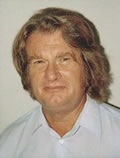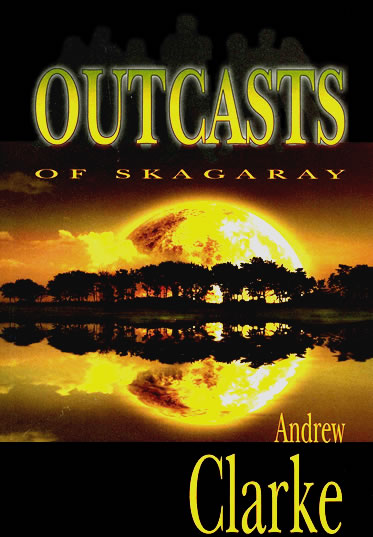REVIEWS OF "OUTCASTS OF SKAGARAY" By Jill Ireland 'Myth or novel, I wondered, as I looked over Andrew Clarke's "Outcasts of Skagaray." Initially, the book seemed as far outside of time as Tolkien or Kelleher, and yet the approach Clarke takes is firmly anchored in realism. By Sophie Masson, author of "Snow, Fire, Sword" and "The Hand of Glory". "Outcasts of Skagaray" is a fast-paced, exciting adventure of how love and courage and faith can overcome cruelty, fear and evil. Its powerful story and vivid cast of characters combine with a strong sense of a fully-realized fantasy world, with echoes of Norse and Orkney myth and history. In the tradition of G.P. Taylor, Philip Pullman, Lewis and Tolkien, this is a gripping, original fantasy quest adventure. (By Sophie Masson, author of "Snow, Fire, Sword" and "The Hand of Glory.") Review by Prue Oldham. As a teacher of Junior High School, Andrew Clarke became increasingly dissatisfied with the quality and content of books given to students for literature study. He decided to write one himself. "Outcasts of Skagaray" is the result. By Ned Makim, editor of the Inverell Times. Published by Three Swans of Inverell, (and later by Musterion Press, of Sisters, Oregon) this book takes us to the land of Skagaray, and no-nonsense place if ever there was one. |
Review by Jill Ireland, New Life, September 18 1997 "Myth or novel... Initially, the book seemed as far outside of time as Tolkien or Kelleher, and yet the approach Clarke takes is firmly anchored in realism. His characters are not mythical figures, but real people; the babies cry at inconvenient times and the unfit hamper the whole group's travel. Throughout the book, the mundane practicalities of life impinge on characters who are fighting against evil. Motives are always mixed, and suspicions are only dispelled through the experience of being in dire need together...God is almost a character in the book, and the implications of His way are profoundly conveyed, without religiosity. This is no small achievement, and will make the book accessible to a wide range of readers from high schoolers to adults." |
 About the Author About the Author Andrew Clarke was born in Malta in 1953 of an Australian father and British mother. He lived in England and Australia and had several jobs before he served in the Australian Army Reserve. He then studied for four years at the University of New England and taught English and History in New South Wales high schools for twenty five years. Always a lover of books and stories, Clarke began writing at the age of seven. Outcasts of Skagaray was written in response to what he loved about reading the history of peoples like the Spartans, Romans, and Vikings. Clarke and his wife Elizabeth have five children and live in Inverell, New South Wales.
|
Copyright 2011 Andrew Clarke Inverell 2360 NSW Australia Website Hosting by Waterfall Way Designs |
